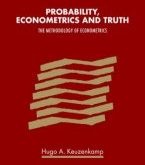from Dean Baker It will be hard to decide the most Trumpian moment in his dealing with the coronavirus pandemic, but my nomination is Trump’s meeting with executives from several pharmaceutical companies, where he discussed developing a vaccine. According to Trump, he asked them to “speed it up,” and they said that they would. The idea that Trump’s admonition to hasten the development of a vaccine would have any impact on these companies’ efforts is too loony to envision for anyone...
Read More »Coronavirus and capitalism’s vulnerability
from C. P. Chandrasekhar Even while the slow growth that followed the Great Recession endures, the world economy is staring at another recession. The OECD Secretariat has reduced its forecast of global GDP growth by half a percentage point to 2.4 per cent, which is the lowest since the global financial crisis. The immediate trigger is the coronavirus epidemic that is disrupting global economic activity. But there is a larger message being sent out by the virus onslaught. The damage that...
Read More »The Keynes/Hicks macro theory — the nonexistence of a New Keynesian unicorn
from Lars Syll Paul Krugman has on numerous occasions tried to defend “the whole enterprise of Keynes/Hicks macroeconomic theory” and especially his own somewhat idiosyncratic version of IS-LM. The main problem, however, is that there is no such thing as a Keynes/Hicks macroeconomic theory! So, let us get some things straight. There is nothing in the post-General Theory writings of Keynes that suggests him considering Hicks’s IS-LM anywhere near a faithful rendering of his thought. In...
Read More »How many times do the drug companies have to be paid for their research?
from Dean Baker That’s what readers of this Politico piece on efforts to restrict patent monopoly pricing of a coronavirus vaccine as a quid pro quo for government funding must be wondering. One might think that if the taxpayers put up money for the research then they have already paid for it, and therefore no patent monopolies would be involved. The vaccine would sell as a cheap generic and drug companies would make profits from it in the same way that manufacturers of paper clips and...
Read More »GDP comparisons across time
from Asad Zaman This continues a sequence of posts aiming to show how apparently objective statistics conceal large numbers of arbitrary value judgements. (1) Lies, Damned Lies, and Statistics, (2) Subjectivity Concealed in Index Numbers, (3) The Values of a Market Society, (4) Cross-Country Comparisons of Wealth, (5) Purchasing Power Parity, (6) Downfall of Rhetoric in 20th Century, (7) Facts & Values: Distinction or Dichotomy?. This is the 8th post, which considers comparisons of...
Read More »Econometrics — a critical realist critique
from Lars Syll Mainstream economists often hold the view that criticisms of econometrics are the conclusions of sadly misinformed and misguided people who dislike and do not understand much of it. This is really a gross misapprehension. To be careful and cautious is not the same as to dislike. And as any perusal of the mathematical-statistical and philosophical works of people like for example Nancy Cartwright, Chris Chatfield, Hugo Keuzenkamp, John Maynard Keynes, Tony Lawson, Asad...
Read More »Rockstar economists – Top 15
Google Hits Paul Krugman 1,490,000 Amartya Sen 1,340,000 Esther Duflo 832,000 Abhijit Banerjee 693,000 Michael Kremer 667,000 Daniel Kahneman 588,000 Joseph Stiglitz 520,000 Alan Greenspan 514,000 Ben Bernanke 510,000 Jeffrey Sachs 489,000 Yanis Varoufakis 461,000 Thomas Piketty 453,000 Dani Rodrik 432,000 Tyler...
Read More »Coronavirus, the stock market, and the economy
from Dean Baker Many people have become very concerned about the economy because of the stock market’s plunge in the last two weeks. While the spread of the coronavirus gives us very good reason to worry about the state of the economy, the plunge in in the stock market does not. In fact, those folks who are very concerned about wealth inequality can celebrate because the wealth of the top 1 percent has just dropped by around 10 percent, while the wealth of the bottom 50 percent has barely...
Read More »Why every econ paper should come with a warning label!
from Lars Syll It should be part of the academic competences of trained economists to be able to be clear about what their models are for; what the models are about; what the models are capable of doing, and what not; how reliable the models are; what sorts of criticisms have been levelled against the models and how the criticisms have been responded; what alternative models there are; etc. The challenge is not easy, and it is clear that it has not been met with sufficient exuberance and...
Read More »The history of econometrics
from Lars Syll There have been over four decades of econometric research on business cycles … But the significance of the formalization becomes more difficult to identify when it is assessed from the applied perspective … The wide conviction of the superiority of the methods of the science has converted the econometric community largely to a group of fundamentalist guards of mathematical rigour … So much so that the relevance of the research to business cycles is reduced to empirical...
Read More » Real-World Economics Review
Real-World Economics Review




